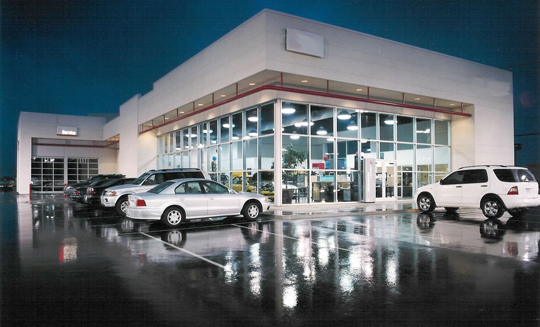Boost Your Drive: Check Out Varsity Lincoln, the Epitome of Lincoln Dealers!
Boost Your Drive: Check Out Varsity Lincoln, the Epitome of Lincoln Dealers!
Blog Article
Exploring the Fine Print: What to Know Before Leasing a Cars And Truck
From surprise fees that may capture you off guard to mileage limitations that can affect your day-to-day commute, being skilled in the intricacies of a lease arrangement is vital. Let's untangle the layers of intricacy that come with leasing a cars and truck to ensure you make an informed choice that lines up with your demands and financial goals.
Lease Problems and terms
Comprehending the lease terms and problems is crucial prior to devoting to a car lease arrangement. These terms outline the duties and obligations of both the lessee and the lessor throughout the lease duration. Furthermore, acquaint on your own with the mileage limits defined in the lease agreement.
Additionally, the lease terms will certainly detail the upkeep requirements for the car. By extensively evaluating and comprehending the lease terms and problems, you can make an informed choice and avoid any type of shocks or misunderstandings during the lease term.

Hidden Fees and Charges
Upon wrapping up the lease conditions, it is critical to look at the arrangement for any type of possible concealed fees and costs that might impact the general expense of the lease. These extra costs can dramatically inflate what initially felt like a great offer. Some usual surprise fees to keep an eye out for consist of procurement fees, personality fees, excess gas mileage charges, wear and tear charges, very early termination fees, and down payment fees.

Understanding Gas Mileage Limits
One essential facet to think about when leasing a car is the fixed gas mileage restriction set by the leasing arrangement. Mileage restrictions define the maximum variety of miles a lessee can drive the car each year without incurring surcharges. It is necessary to thoroughly comprehend these limits as surpassing them can lead to expensive fees at the end of the lease term
Commonly, lease arrangements use gas mileage limits varying from 10,000 to 15,000 miles each year, with options to acquire extra miles upfront at a reduced rate. Lessees must properly assess their driving habits to choose a suitable mileage limitation that aligns with their demands. Reviewing the agreed-upon gas mileage can lead to excess mileage fees, which are normally computed per mile and can accumulate quickly.
To avoid unanticipated charges, lessees must check their gas mileage throughout the lease term and think about choices such as carpooling or making use of mass transit when nearing the limit. Understanding and adhering to the gas mileage restricts laid out in the leasing arrangement is crucial for a smooth and affordable leasing experience.
End-of-Lease Responsibilities
As completion of the lease term methods, lessees have to be prepared to meet their end-of-lease obligations promptly and according to the leasing contract. One crucial duty is ensuring that the automobile is returned in good condition, considering normal deterioration. A lot of leasing arrangements stipulate details guidelines relating to the acceptable problem of the auto at the end of the lease, and lessees might be economically accountable for any excessive damage.
Furthermore, lessees are generally required to follow gas mileage limitations detailed in the leasing arrangement. Surpassing these limits can lead to overage charges that can build up swiftly. To prevent unforeseen fees, it is essential for lessees to check their mileage and plan in advance as the end of the lease term methods.
Last but not least, lessees must know any end-of-lease fees that may apply. These might consist of disposition fees, excess wear and tear costs, or any kind of exceptional repayments. By recognizing and preparing for these obligations in advancement, lessees can ensure a smooth and hassle-free end to their leasing contract.
Insurance Requirements
Comprehending the insurance coverage demands is necessary for lessees when renting a vehicle to guarantee appropriate insurance coverage throughout the regard to the lease. The majority of leasing business usually call for lessees to carry extensive and crash insurance on the vehicle. Comprehensive insurance policy covers problems not triggered by a crash, such as burglary, criminal damage, or all-natural catastrophes. Crash insurance coverage, on the other hand, covers problems arising from a collision with one more vehicle or object.
In addition to extensive and accident insurance coverage, lessors usually mandate specific liability insurance coverage limits that lessees have to fulfill. Responsibility insurance policy covers costs related to physical injury or residential property damages that the my company lessee might cause to others while driving the leased automobile. Lessees should carefully examine the insurance policy needs described in their lease contract to guarantee they are certified.
Failing to maintain the required insurance coverage can lead to penalties and even the discontinuation of the lease arrangement. It is crucial for lessees to connect with their insurance coverage provider to ensure that they satisfy all the insurance policy needs defined by the lessor.
Verdict
Finally, it is essential for individuals considering renting an automobile to meticulously evaluate the lease terms, know any covert costs and charges, comprehend mileage limitations, and prepare for end-of-lease obligations. In addition, conference insurance policy demands is necessary to protect both the owner and the lessee. By being informed and understanding these essential facets, individuals can make well-informed choices when leasing a cars and truck.
Upon finalizing the lease terms and problems, it is imperative to inspect the contract for any kind of prospective concealed fees and fees that might influence the overall price of the lease.Acquisition costs redirected here are billed by the leasing firm for setting up the lease, while disposition costs are sustained at the end of the lease term. By very carefully assessing the lease contract for these concealed costs and costs, you can stay clear of unforeseen financial surprises more and make a much more enlightened choice when leasing a cars and truck.
Recognizing the insurance policy needs is vital for lessees when renting an automobile to guarantee correct protection throughout the term of the lease.In verdict, it is vital for people taking into consideration renting an auto to carefully review the lease terms and conditions, be aware of any covert charges and charges, recognize mileage restrictions, and prepare for end-of-lease duties.
Report this page